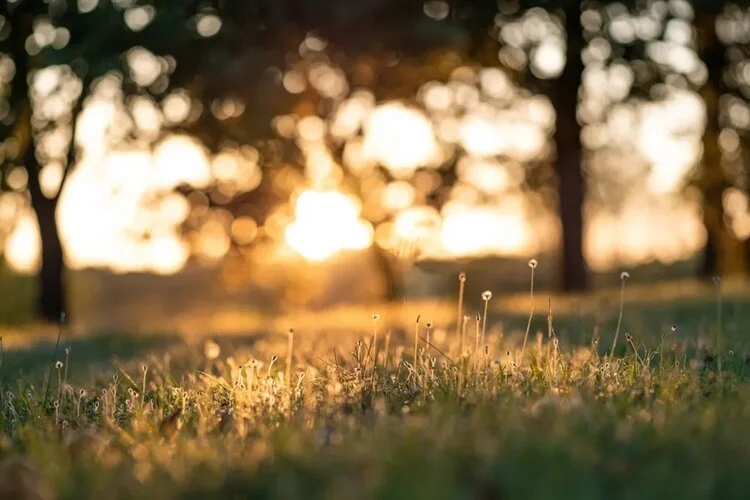"Let There Be Rest"
In the reading from Mark's gospel that is part of liturgy on July 21, Jesus extends the invitation to "come away to a deserted place all by yourselves and rest a while." Rest is a blessing - a gift from God, and something as necessary to being human as our very breath. So, since we are in the summer season of rest and relaxation and we have in invitation from Jesus to rest, why not sing a hymn about rest?
This is a portion of the words of Hanna C. Brown that we'll sing on Sunday:
Let there be rest; there is rest for you.
Claim back your breath; there is breath for you.
Free from the pressure, the pushing, the pain-
yes, take your rest, there is rest for you.
Brown writes of this text:
This hymn began as an exploration of the commandment to rest and to ensure rest for the people, animals, and land around us. I was inspired by ongoing conversations about rest as an issue of justice including the work of Tricia Hersey, the “Nap Bishop,” who teaches that rest can be both resistance and reparation.
The music for this hymn, which we'll learn on Sunday, is an easy-to-sing soulful gospel ballad by musicians Adam Tice and Ben Brody, friends of mine from the Hymn Society in the United States and Canada.
Prelude
This Sunday is one of several opportunities we have to pray Psalm 23, "the Lord is my shepherd..." as part of the Revised Common Lectionary, the cycle of scripture readings assigned to each Sunday. We'll sing a Psalm 23 hymn during communion, and the prelude, César Franck's Pastorale, will echo the themes of Psalm 23.
When you hear the first theme of this piece, you will be able to imagine a peaceful, pastoral scene with sheep safely, serenely grazing. This alternates with a hymn-like theme played on a slightly richer tone on the organ. Then the "storm" begins. A theme in a minor key is introduced, adding darkness to the sonority. Sharp, biting staccato chords on a reed sound evoke frightened sheep scattering. As the "storm" subsides, the two initial themes come together and we hear what almost sounds like a bell calling the sheep back together under their beloved, good shepherd.
I particularly enjoy playing Franck's organ music as he was a musical "ancestor" of mine. One of my teachers studied with Marie-Louise Langlais, the wife of Jean Langlais. Jean Langlais was the organist at Ste. Clotilde in Paris, the church where Franck had been the organist.



